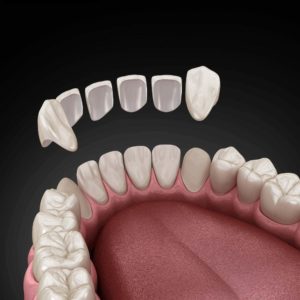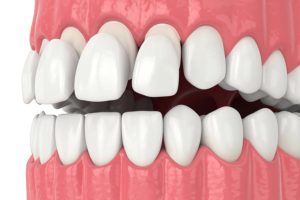Dental veneers can give you a bright, beautiful smile, but do they protect your teeth from decay? While veneers cover the front of your teeth, the rest of your tooth remains exposed. This means that if proper oral hygiene isn’t maintained, your teeth can still rot under veneers. Let’s explore what happens to your natural teeth under veneers and how to keep them healthy.
What Happens if Your Teeth Rot Under Veneers?

If your teeth start to decay under veneers, it can lead to serious dental problems. Because veneers cover the front of the teeth, it can be difficult to see early signs of decay. Here’s what can happen:
- Cavities can form on the exposed parts of your teeth, such as the back and sides.
- Bacteria can get trapped between the veneer and your natural tooth if the veneer is not properly sealed.
- Decay can spread, weakening the tooth and potentially leading to infection or tooth loss.
- You may experience pain or sensitivity, especially when eating hot or cold foods.
If decay becomes severe, your dentist may need to remove the veneer and treat the tooth. In some cases, a crown or even a tooth extraction might be necessary.
What Happens to Old Teeth Under Veneers?
Your natural teeth remain underneath the veneers, but they are not invincible. Over time, they can change due to:
- Aging and wear – Just like any teeth, they can weaken over time.
- Plaque and tartar buildup – This can lead to cavities or gum disease.
- Gum recession – If gums recede, the edges of your veneers might become visible, exposing parts of your natural tooth.
- Tooth decay – If oral hygiene is neglected, decay can still occur under and around the veneers.
Keeping up with good oral hygiene and regular dental visits is essential to ensure your teeth stay healthy under veneers.
Do Teeth Turn Black Under Veneers?
Yes, teeth can turn black under veneers if decay occurs or if stains form beneath the veneer. Some common causes include:
- Tooth decay – If a cavity develops under a veneer, the tooth may darken over time.
- Staining from previous dental work – If a tooth had a filling before the veneer was placed, the material might discolor and show through.
- Poorly sealed veneers – If there’s a gap between the veneer and the natural tooth, bacteria and staining agents can seep in.
- Root canal issues – If a tooth under a veneer needs a root canal, it may darken due to lack of blood flow.
If you notice discoloration, visit your dentist to determine the cause and discuss possible treatments.
Are Your Teeth Safe Under Veneers?

Veneers do provide some protection, but they do not make your teeth decay-proof. Your teeth can still be at risk if you don’t take proper care of them. Here’s how to keep your teeth safe:
1. Maintain Good Oral Hygiene
- Brush twice a day with fluoride toothpaste.
- Floss daily to remove plaque from between teeth.
- Use an antibacterial mouthwash to kill bacteria.
2. Get Regular Dental Checkups
- Visit your dentist every six months for exams and cleanings.
- Address any dental issues early before they worsen.
3. Avoid Harmful Habits
- Don’t chew on hard objects like ice or pens.
- Reduce consumption of sugary and acidic foods.
- Avoid smoking, which can contribute to gum disease and decay.
4. Ensure Proper Veneer Placement
- Poorly fitted veneers can leave gaps where bacteria can thrive.
- Choose an experienced dentist to apply veneers correctly.
Signs That Your Teeth Might Be Rotting Under Veneers
It can be hard to detect decay under veneers, but here are some warning signs:
- Loose or shifting veneers
- Increased sensitivity to hot, cold, or pressure
- Pain or discomfort around a veneered tooth
- Inflamed or receding gums
- Dark spots or discoloration near the edges of the veneer
If you notice any of these symptoms, schedule a dental visit as soon as possible.
Final Thoughts
Veneers can enhance your smile, but they don’t stop tooth decay. Proper care is essential to keep your teeth healthy beneath them. By brushing, flossing, visiting your dentist regularly, and avoiding harmful habits, you can enjoy a bright and healthy smile for years to come. If you ever experience pain, sensitivity, or discoloration, don’t ignore it—see your dentist right away to prevent further damage.
Taking care of your teeth under veneers is just as important as caring for natural teeth. With the right routine, you can keep your smile looking great while protecting your dental health!

